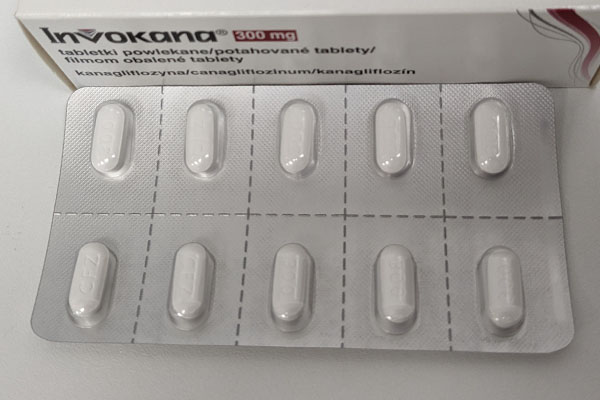Hundreds of thousands of Americans take the drug Invokana (canagliflozin), which is used to treat Type 2 diabetes. Since its introduction to the market in 2013, Invokana has become one of the most popular diabetes medications nationwide. However, since its inception, Invokana has been associated with several serious side effects - and this dangerous drug has been marketed and sold despite these significant health risks.
A new class of diabetic treatment drugs
Invokana is a drug used to treat type 2 diabetes. Type 2 diabetes typically develops in middle age or older age and is linked to lifestyle and genetic factors. Symptoms of type 2 diabetes include increased thirst and frequent urination, among others. Invokana, also known as canagliflozin, lowers blood sugar in adults with type 2 diabetes by inhibiting the kidneys' reabsorption of glucose. The glucose is then excreted in the urine.
Much of the attention Invokana garnered during its FDA process was due to its mechanism of action. It is the first sodium-glucose cotransporter 2 (SGLT2) inhibitor of its class to be introduced to the American public. Invokana blocks glucose from being reabsorbed into the blood; essentially attacking blood sugar at the beginning of the cycle. Traditional diabetic drugs act once the blood sugar has been absorbed into the cells.
Serious concerns have plagued Invokana since its inception
When Invokana was first approved in 2013, the Food and Drug Administration (FDA) required its manufacturer, Janssen Pharmaceuticals (a subsidiary of Johnson & Johnson), to conduct double-blind prospective placebo studies to evaluate the medication's risks. Such studies are the "gold standard" in the pharmaceutical industry and are rarely required due to the associated costs and risks.
However, concerns about Invokana's suspected link to cardiac problems were serious enough to require these studies.
After an FDA-mandated clinical trial, CANVAS, it was discovered that the use of Invokana was directly linked to an increase in amputations of limbs. Halfway through those double-blind studies, evidence began to emerge that Invokana patients were at a significantly elevated risk of lower limb amputations, meaning the loss of a toe, foot, or leg either above or below the knee.
The final results found leg and foot amputations occurred twice as often in those patients treated with Invokana compared to those treated with the standard diabetic protocol.
Most patients in the CANVAS trial suffered from infections, restriction of blood supply to legs or feet, or death of soft tissue due to loss of blood supply before the need for amputation. Toe and mid-foot amputations were documented the most; however, leg and above-the-knee amputations were also reported.
In addition, Invokana has been linked to diabetic ketoacidosis, a serious and potentially fatal condition, as well as kidney failure.
Black Box warning applied to Invokana
The U.S. Food and Drug Administration monitors studies and reports from adverse effects to determine the side effect warnings of pharmaceutical drugs and medical devices. The totality of the information is examined for public safety and potential warnings. The most serious of these label warnings is known as a "black box warning." It is designed to highlight the most significant risks associated with the use of a drug.
In 2015, the FDA issued a diabetic ketoacidosis warning for Invokana and related drugs. Invokana was required to implement a Black Box warning in its labels in May of 2017 due to the link between Invokana and lower limb amputations. This warning is for both health professionals and patients to make informed treatment decisions.
Negligence on the part of the manufacturer may have led to serious injuries
By 2016, Johnson & Johnson was well aware of the risk of amputation as the results of the double-blind studies became clear. However, the manufacturer did nothing at that time to warn patients and doctors of those risks.
More recently, Johnson & Johnson has seized upon study results indicating Invokana may provide some protection against cardiac problems. While those results may be legitimate, patients need to be fully aware of all risks associated with their medications so they can make informed decisions about their health. Lawsuits are already pending against Janssen and Johnson & Johnson due to the serious health risks associated with their product.
Contact a Texas injury attorney today
If Invokana has injured you or someone you know, the personal injury attorneys of Tracey Fox & Walters can help. Our firm has worked for years to hold drug manufacturers responsible for the injuries inflicted on uninformed patients. Call 888-475-0357 or contact us online today for a free consultation for a potential claim against the makers of Invokana.



